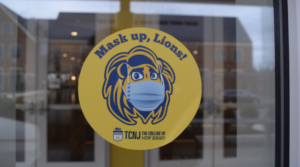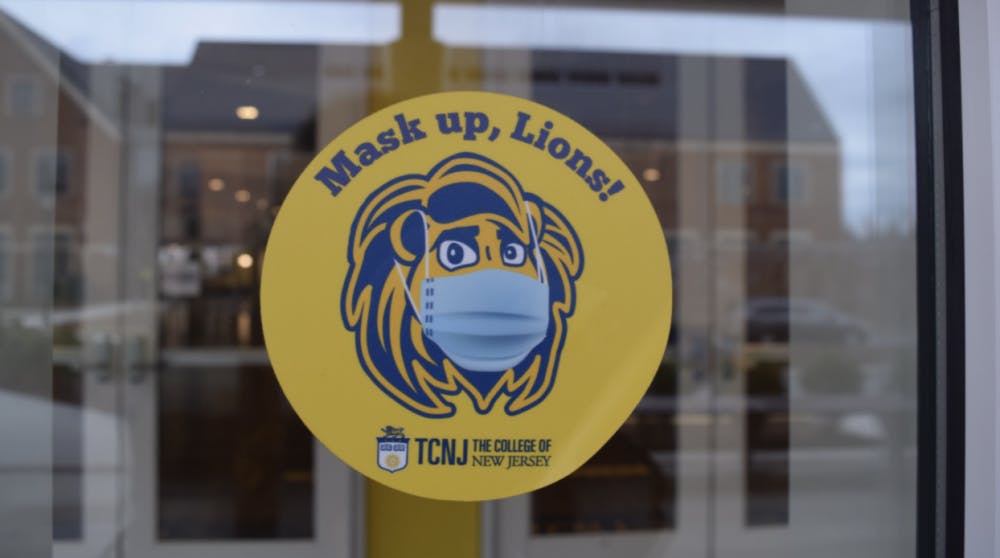By Sean Leonard
Staff Writer
As more students are becoming eligible to receive a Covid-19 vaccine, many colleges are considering requiring the vaccine for students to return for the fall semester. Rutgers University, which has over 71,000 students, was the first school to announce it will require a Covid-19 vaccine for all students enrolled for fall 2021. According to NPR, over a dozen colleges have followed and announced the same requirement.
According to the CDC, over 198 million Covid-19 vaccines have been administered to Americans thus far. However, implementing a mandate at the College is complicated since the three vaccines are under Emergency Use Authorization (EUA) and have not yet been given full approval by the FDA.
In an April 5 email, President Kathryn Foster clarified that the College does not plan on implementing a mandate until the FDA fully approves the vaccines, but that decision might change depending on the legal ability to require a vaccine under EUA. She said the final decision will be made by the College’s Health and Safety Readiness Task Force and will reflect official CDC guidance. Nevertheless, Foster strongly encouraged students to receive a vaccine when eligible.

“Our ability to return to campus in the fall, partake of a range of activities and protect the health of TCNJ community members and our off-campus neighbors depends upon high levels of vaccination,” Foster said in the email.
Junior mathematics and secondary education major Justin Bakos is currently living off-campus and received vaccinations for the flu and Covid-19 this season. However, Bakos said he thinks the College should not require vaccination for the fall until the FDA grants full approval.
“We only recently found out about AstraZeneca and [Johnson and Johnson] causing blood clots in extremely rare cases, and only found out recently that some people have allergic reactions to certain vaccines in extremely rare cases. We will likely find out more side effects in the future,” Bakos said. “In the future, if it is FDA approved and we know more about the side effects, I believe it is worth considering the possibility of having mandatory vaccines. I just think right now is too early to make any decisions.”
Other students such as junior economics major Kaylyn Silva believe the College should require Covid-19 vaccinations, even if the FDA does not fully approve them before the fall semester. Silva said these vaccines are essential for our society to return to normal
“Full-time students should be required to have a Covid-19 vaccination for the fall regardless if they dorm or commute,” Silva said. “The vaccine is essential to protect the safety of students, staff and anyone associated with TCNJ and even family members or friends of those individuals who aren’t associated with TCNJ.”
One concern about a mandatory vaccine is ensuring that students have access and the ability to get the shot before the fall. As of April 19, everyone age 16 and older is eligible to receive the vaccine, according to covid19.nj.gov.
In an email on April 9, Director of Student Health Services (SHS) Janice Vermeychuk sent a survey to evaluate the interest of students, staff and faculty in receiving a Covid-19 vaccine on campus in the near future. Every on-campus student employee is eligible to be vaccinated on campus as of April 16, according to an email from Vermeychuk on April 14.
“I think it’s great that TCNJ is planning to vaccinate some people on campus. I do think the College should provide vaccinations to every student. It will be convenient if vaccines are available on campus for students as it may be difficult to book an appointment elsewhere,” Silva said.
Although Covid-19 is relatively new, the College, like most U.S. universities, is no stranger to mandatory immunizations and health requirements. According to Student Health Services (SHS), all first-year and transfer students must complete pre-entrance health requirements by July 15 if they are starting in the fall.
The requirements are outlined in the TCNJ Pre-entrance Health Requirement Packet and include mandatory vaccinations for Measles, Mumps and Rubella (MMR), Meningococcal Meningitis ACWY, Varicella, Tetanus, Diphtheria and Pertussis (Tdap) and Hepatitis B. This semester, on-campus students were also required to receive a flu vaccine, according to a Dec. 15 email from SHS.
Junior graphic design major Katie Cocca lives in Campus Town and said this is the first time she has received the flu vaccine in two years.
“The pandemic has made me realize more than ever just how important it is to keep up to date on your shots in order to protect the community,” Cocca said. “Just because I may not be at risk of dying from the flu, a compromised member of our wider community may be.”
Because of all of the other requirements, Cocca said mandating the Covid-19 vaccine for the fall is the most responsible course of action.
“In 2017 when I was first arriving at college, TCNJ required that we submit a full list of our immunizations. It is standard practice for times without distress, and the College should go forward with requiring the vaccine for our upcoming semester,” Cocca said. “The vaccine is available at no-cost and the only real barrier to getting it would be the ability to travel to a vaccine site. Ideally, the College would be able to give them out to students from a distribution site on-campus.”
It is currently unclear how exemptions for the Covid-19 will be granted, especially if they are not given full approval. According to SHS, exemptions for required immunizations include students who have not been admitted to a degree or certificate program, students who are only taking courses outside of New Jersey or students who have a valid medical contraindication to specific vaccines. Students who request exemption from a vaccination must fill out a Request for Medical Exemption form.
The SHS website does not mention religious exemptions, but according to NJ Statutes 26:1A-9.1, religious exemptions extend to private, parochial and public institutions in the state. However, NJ State Administrative Code 8:57-4.4 gives schools the ability to deny religious exemptions during a vaccine-preventable disease outbreak and the pandemic might be interpreted as such.
“If the school is going to mandate vaccines but allow for exemptions for religious or philosophical reasons, then the mask mandate and quarantine requirements need to stay in place in order to protect students and staff alike. These rules are in place to also protect, let’s not forget, our cafeteria staff, our library staff, our janitors and maintenance staff, our professors and our coaches,” Cocca said.
Instead of enforcing a requirement for vaccination, some colleges are offering incentives for students to get the shot. According to the Associated Press, Dickinson State University in North Dakota will be exempting students from a campus mask mandate once they are fully vaccinated, which is two weeks after their last dose. Cocca said she was unsure what an incentive like that would look like at the College.
“I don’t know what an incentive would look like if we had one. It’s irresponsible to remove the mask mandate too quickly or to change rules about quarantining. It’s hard enough as it is to ensure that people on-campus and off-campus are compliant,” Cocca said.
Bakos agreed with Cocca and said the College should be careful if it chooses to offer incentives for vaccinated students.
“If it chooses to lax policies for people who get the vaccine, it should follow the CDC guidelines,” Bakos said. “TCNJ needs to be careful to make sure not to punish people who choose not to get the vaccine at this time.”







